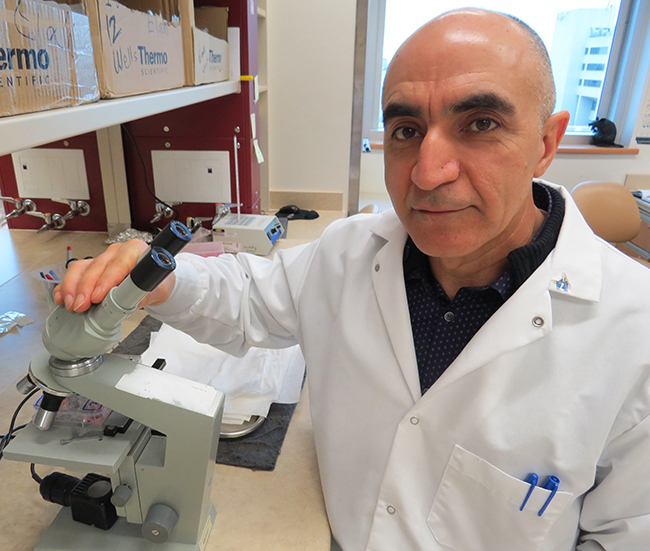New protein found in cancer patients said to affect treatment outcomes
Tarwinder Rai - 17 December 2020

A new protein discovered in cancer patients by University of Alberta researchers is said to affect the outcome of immunotherapy treatment in virus-related cancers.
Cancer patients who are non-responsive to immunotherapy treatment for tumours were found to have a higher prevalence of the newly discovered galectin-9 (Gal-9) protein on their killer T-cells (white blood cells responsible for recognizing and killing virus-infected cells and tumour cells) causing cancer progression.
"We found that patients who exhibited high levels of Gal-9 protein on their killer T-cells were unable to defend against tumour and cancer progressed," says Shokrollah Elahi, an immunology researcher at the School of Dentistry. "The discovery of this protein demonstrated that Gal-9 is highly prevalent in viral-associated cancers and therefore provides a new research opportunity to study immunotherapy treatments targeted specifically to this protein.”
The study, Galectin-9 expression defines exhausted T cells and impaired cytotoxic NK cells in patients with virus-associated solid tumours, focused on virus-related cancers in the head, neck, and genital tract like the human papillomavirus (HPV).
Over the course of more than two years, 40 patients took part in the clinical trial in collaboration with John Walker, an oncologist at the Cross-Cancer Institute in Edmonton who designed the cancer study phase II trial. Blood samples and biopsies of tumours were collected prior to the initiation of treatment, and then every two weeks.
Immunotherapy is an injection-based cancer treatment that works to boost the body's natural defenses to fight cancer. As a result, this study found that these treatments were unresponsive in patients who exhibited high levels of the Gal-9 protein.
"We found that patients with low levels of Gal-9 protein exhibited a robust immune response against the tumours and responded well to immunotherapy," says Elahi, who added that immunotherapy treatment is often used in cancer treatment instead of radiotherapy and chemotherapy. "We are now presented with the opportunity to study this protein in other types of cancers as well."